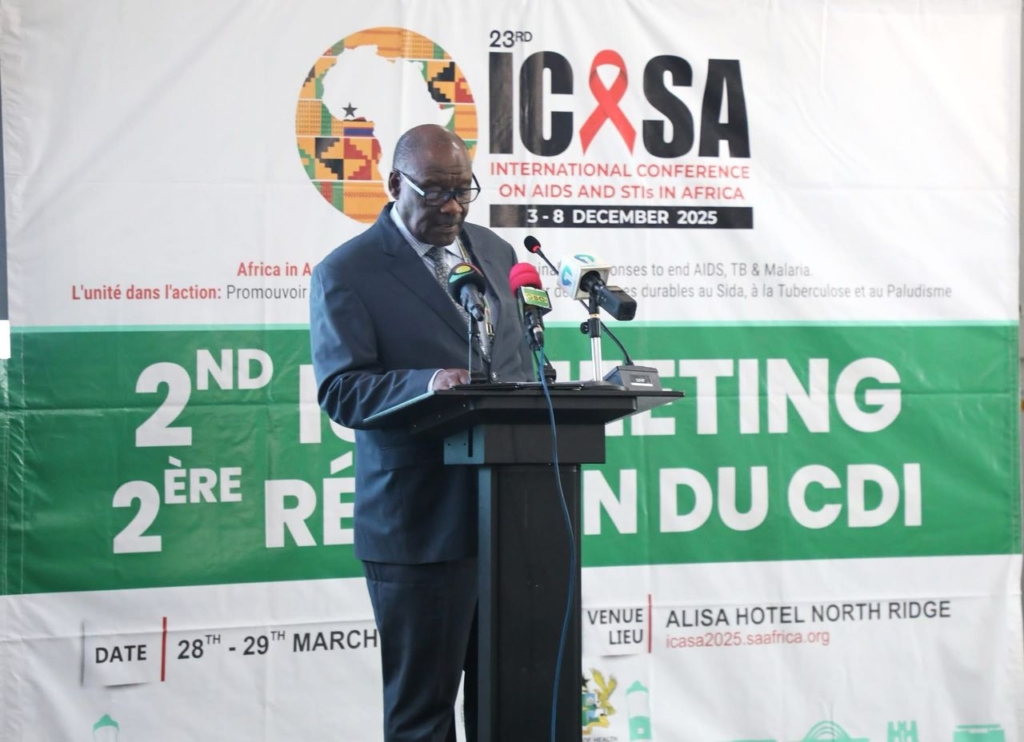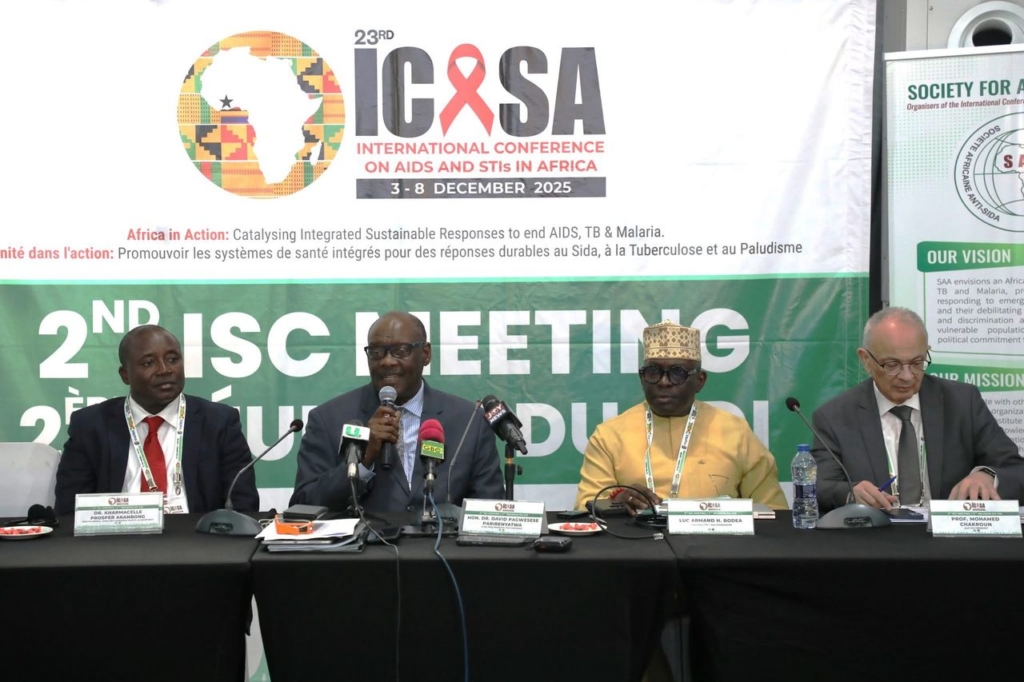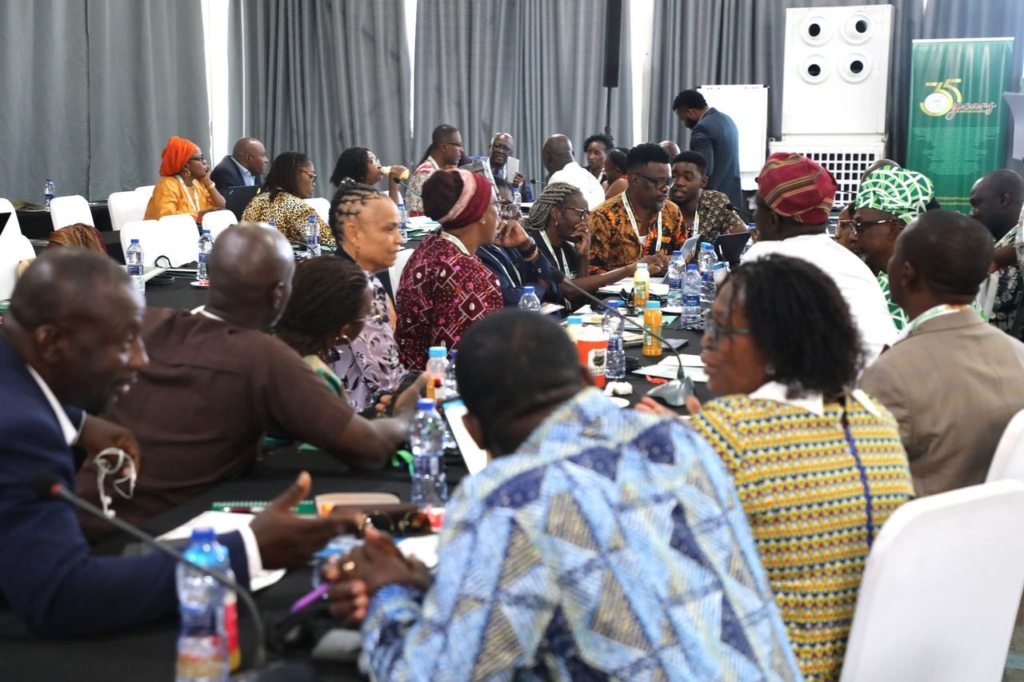Ghana is stepping up preparations to host the 23rd International Conference on AIDS and Sexually Transmitted Infections in Africa (ICASA 2025), scheduled for 3rd to 8th December at the Accra International Conference Centre.
The event, expected to attract over 12,000 participants, will bring together scientists, policymakers, healthcare professionals, and civil society organisations to discuss Africa’s response to HIV, tuberculosis, malaria, and other infectious diseases.
Discussions will also explore strategies for domestic health financing in the wake of declining donor support.
At the second International Steering Committee meeting held in Accra on Thursday, 28th March 2025, health officials and partners reviewed progress and finalised the list of plenary speakers. The meeting also addressed Ghana’s leadership role in shaping conversations around sustainable funding for public health in Africa.

Dr David Pagwesese Parirenyatwa, President of the Society for AIDS in Africa (SAA) and Chair of ICASA 2025, said the conference would provide a platform for African countries to take greater ownership of their health challenges.
“We cannot continue to rely on donor funding. Africa must now look inward, whether through oil, gold, or cocoa and prioritise health for our people,” he said.
Dr Parirenyatwa also commended President John Dramani Mahama for helping secure Ghana’s hosting rights, describing it as a timely opportunity for African governments to rethink how they finance health programmes.

“We’ve depended on donor funds for too long, up to 80% in some cases, which poses a security risk. This is a wake-up call. We cannot continue to rely on American aid. We must begin to mobilise our own resources from oil, gold, platinum, and other natural wealth,” he added.
Director-General of the Ghana AIDS Commission, Dr Kharmacelle Prosper Akanbong, described Ghana’s hosting of ICASA as a major step in the country’s HIV response.
“For the first time, Ghana is hosting ICASA. As the local organising committee, we have a number of responsibilities. We’re expected to provide scholarships for about 500 young health workers and students. We also have to make sure venues such as the Accra International Conference Centre are ready,” he said.
Dr Akanbong noted that beyond its public health value, the conference would also have economic and research benefits.
“This is an opportunity to showcase Ghana’s progress in HIV response and to position the country more visibly in global health discussions,” he said.
He added that with possible cuts to U.S. HIV funding, there was growing pressure on Ghana to secure alternative sources.
“The issue of sustainability has been on the table for some time, but with likely reductions in U.S. support, we must act quickly. African governments need to build financial resilience and present strong investment cases to maintain our programmes,” he said.

Vice President of the Society for AIDS in Africa, Prof Muhammad Chakron, said ICASA 2025 comes at a time when global health funding is under strain.
“The most pressing issue at this conference is the difficulty in securing funding for global health, especially after the freezing of U.S. external assistance,” he noted.
Prof Chakron urged African countries to increase investment in HIV, TB, malaria, and health research.
“This is necessary to keep making progress, and we expect it to be thoroughly discussed at the conference,” he added.
Mr Luc Armand Bodea, Director of ICASA and Coordinator of the SAA, encouraged Ghanaians to engage actively with the conference.
“ICASA is not only for technical experts and policymakers. It is also a space for people living with or affected by HIV to be heard,” he said.
Mr Bodea explained that ICASA 2025 would include a Community Village, an open-access space where the public can take part without paying to attend the main conference.
“It’s designed to allow more people to interact with the issues being discussed. You don’t need a formal invitation or accreditation to participate in that space,” he said.
He confirmed that 32 countries were represented at the Accra steering committee meeting, and at least 120 countries are expected to attend the main event in December.
“Ghana is not just hosting this for itself, but for the entire West African region,” he added.
The conference will feature over 560 sessions covering scientific research, policy development, and grassroots initiatives.
Representing the Minister of Health, Dr Franklin Asiedu-Bekoe, Director of Public Health, reaffirmed Ghana’s readiness to host.
“This is a proud moment for Ghana and a chance to show our hospitality to thousands of guests,” he said.
Dr Asiedu-Bekoe noted that while HIV prevalence in Ghana has remained under 2% for nearly a decade, more work is needed to reduce new infections and improve treatment.
“ICASA gives us a rare opportunity to learn from others and improve our national response,” he said.
He added that government ministries, including Finance, Tourism, and Foreign Affairs, are working closely with other agencies to prepare for the event.
“We’re also inviting private sector support. This isn’t just a public health event, it will bring benefits to Ghana’s economy too,” he said.